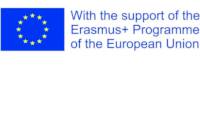|
26.12.2019
On November 16, 2019 Dr. Dilbar Sultanova started her lectures in “EU Practices to Support Innovative Engineering Entrepreneurship” for MSc students of group 539-M1. The course will give an overview of the EU policies in support of innovative entrepreneurship, including European associations engaged in polymer processing to supports SMEs and their cooperation procedures. The course focuses on development of polymer clusters in European Union and Russian Federation. A special attention is given to polymer recycling following the concept of circular economy in the leading countries. The course will cover the following topics:
1. An overview of the EU policy to support innovative entrepreneurship:
– public expenditures on research and development;
– communication of scientific research in the public sector with industry;
– tax incentives for scientific research;
– intellectual property issues;
– participation in market research of small and medium enterprises.
2. Best EU practices to facilitative innovative activities of small and medium size business. Experience of Germany, Ireland, France, Finland, the Netherlands.
3. Functions and responsibilities of the EU industrial clusters, business-associations, trade chambers and economic development agencies to find their best practices in international entrepreneurship.
4. Mechanisms to support small and medium size businesses within industrial clusters. The course focuses on chemical, petrochemical and plastic clusters.
5. Universities and centers of competencies in industry as drivers of the EU innovative development.
6. The EU R&D commercialization funds . EU grant giving foundations and associations to support SMEs and procedures of collaboration between them.
7. Horizon 2020: participation of the Russian research groups and small innovative enterprises.
8. The EU research and development internationalization
9. Integrated approach to national policy development.
The European Commission's support for the production of this publication does not constitute an endorsement of the contents, which reflect the views only of the authors, and the Commission cannot be held responsible for any use which may be made of the information contained therein.

⚹This project has been co-funded by the Erasmus + Programme of the European Union. This website reflects the views only of the author, and the Commission cannot be held responsible for any use which may be made of the information contained therein.
|